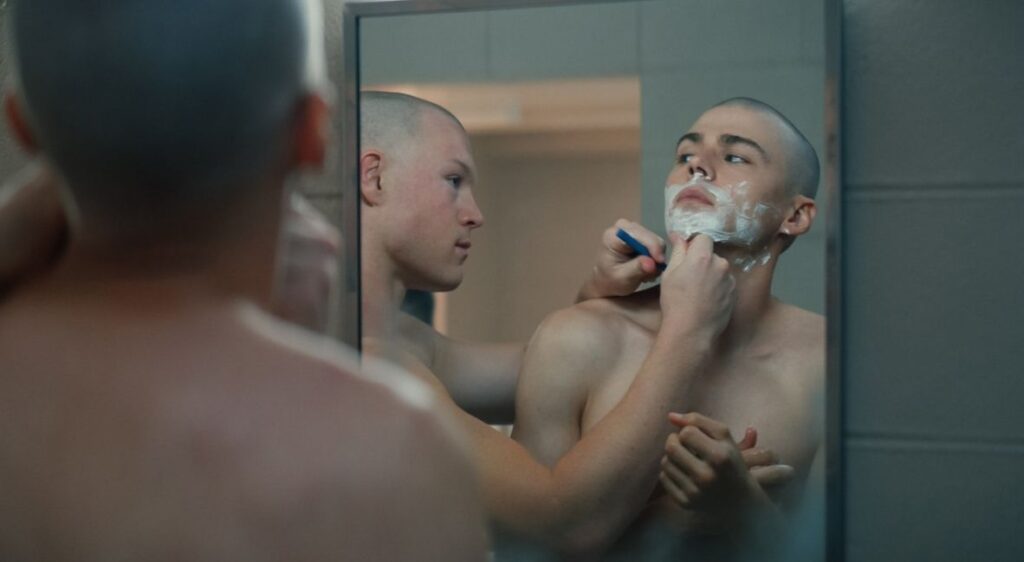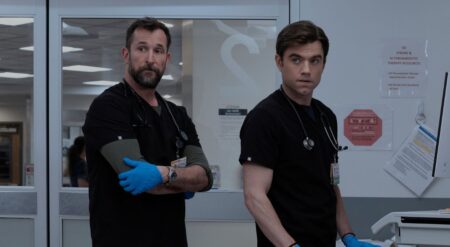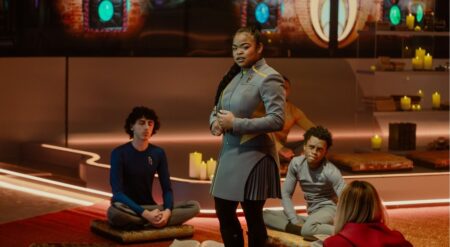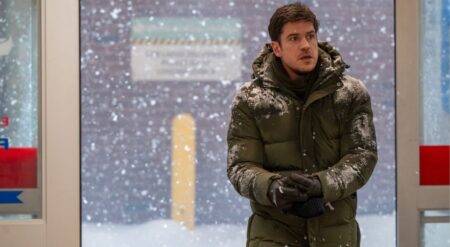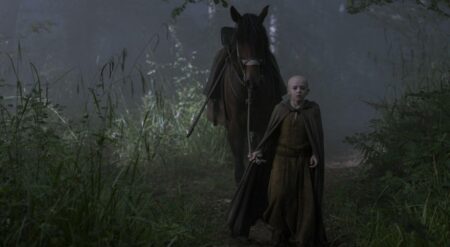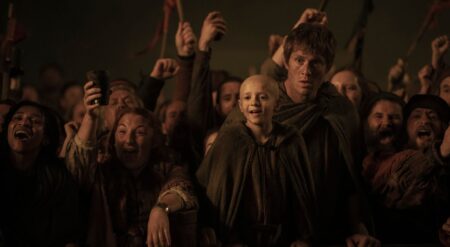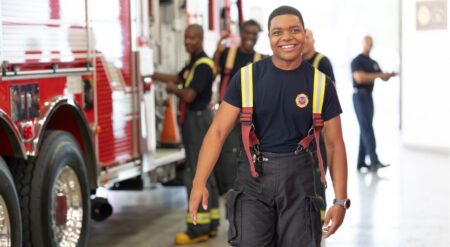You won’t find me celebrating entertainment that glorifies the military or encourages young people to join it. At first glance, I thought BOOTS (2025) was an attempt to highlight people not shown in military stories, and drive them to the recruitment office. Well, that’s Taylor Sheridan’s Lioness series, not BOOTS.
Created by Andy Parker and co-showrun by Jennifer Cecil, with legendary producer Norman Lear serving as an executive producer, the series offers a different take on the coming-of-age story in a challenging setting. BOOTS isn’t afraid to be vulnerable, mean, or highlight the importance of the relationships that we build. And it does it all within the confines of a Marine boot camp.
BOOTS follows Cameron Cope (Miles Heizer) as he enlists with his best friend, Ray McAffey (Liam Oh). Where Ray, the son of a decorated Marine, is looking to forge a path in the military that his father can be proud of, Cameron is quite literally along for the ride.
Set in 1990, the best friends see an ad for the Marines, which encourages young people to join with a buddy. If they do so, they won’t be separated, and they’ll hopefully complete training with someone they know.
The Pink Marine is the basis for this new series, but it goes beyond just one memoir.
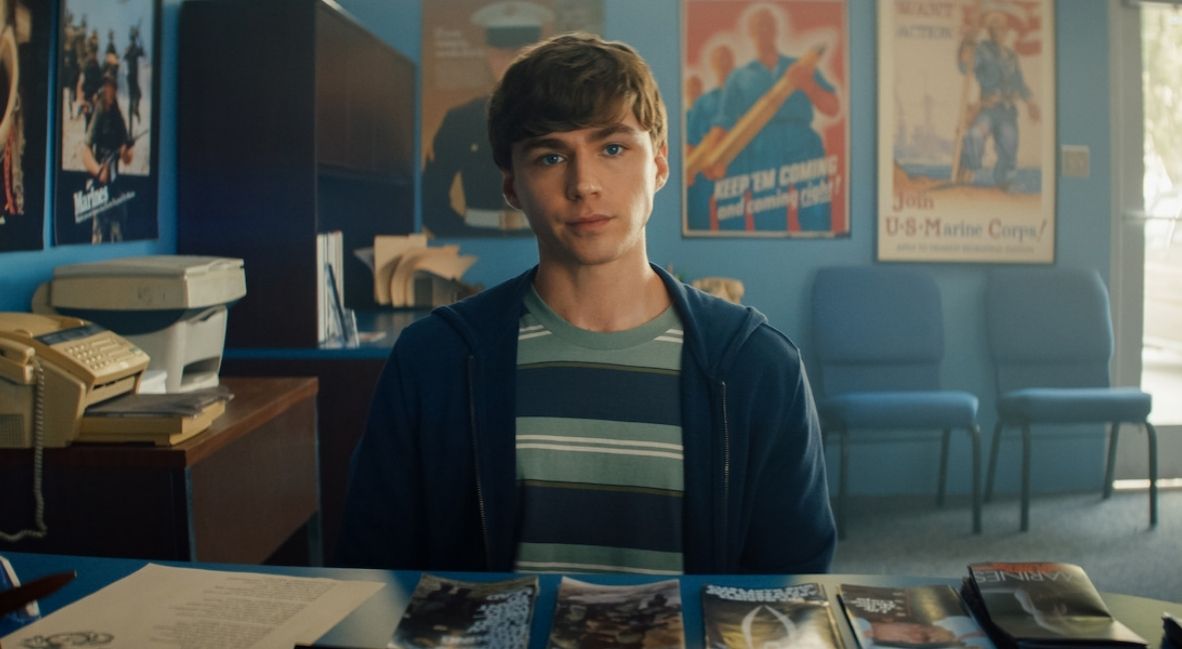
Cameron’s decision to attend boot camp can be summed up by the fact that when he tells his mom he’s leaving, she responds with a disinterested, “Pick up milk.” Much of Cameron’s life has been spent being bullied at worst, ignored at best, and the Marines, if the advertisements are to be trusted, will turn him into a man with purpose and drive. Something he has very little of.
But, there is one big problem: Cameron Cope is gay. While the current administration’s attack on queer people in the military is aggressively targeting uniformed soldiers, the insidious don’t say gay policy of the ’90s did harm as well. Still, Cameron joins anyway.
It’s a choice that doesn’t look to hide anything about why it’s made. BOOTS isn’t about telling anyone’s curated identity story, although it heavily touches on familial violence, racism, homophobia, and physical assault in the military. Instead, the series, inspired by Greg Cope White’s memoir The Pink Marine, is a slice of messy and vulnerable understanding of the world, as told by one gay teenager trying to become a man.
Cope doesn’t hate himself, nor is he ashamed. He isn’t trying to head back into the closet, but in some ways, as the other boys and his drill sergeants call him slurs, he’s trying to be okay with it. Cope is trying to understand who he is and how to endure the challenges life throws at him.
Netflix’s BOOTS offers up a different approach to telling a coming-of-age story, especially a queer one.
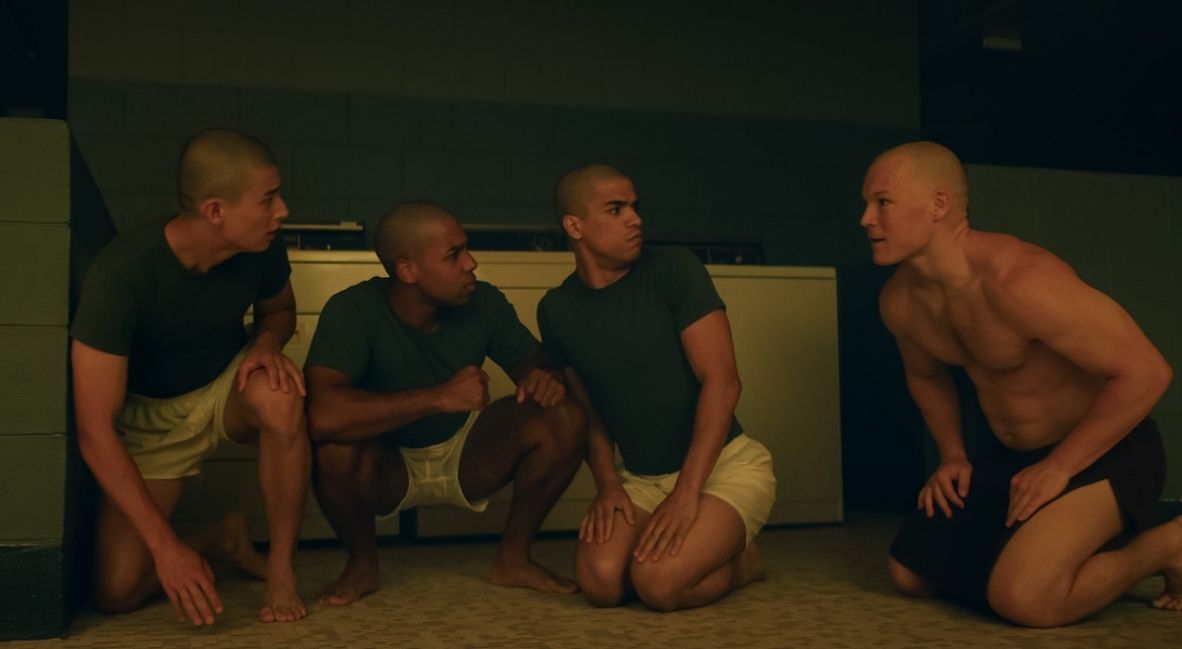
BOOTS isn’t the prim and proper coming-of-age story, like say, Netflix’s Heartstopper. It’s because of this that it’s a must-see. The joy that Cope begins to feel is hard-won; the friendships he builds are forged in fire, and the hatred he faces is not always something he can change. However, as illustrated visually by his inner monologue coming to life as he sits with himself, he is learning to keep moving forward.
But it’s not just Cope who undergoes a transformation throughout boot camp. The rest of the ensemble cast, specifically McAffey, Nash (Dominic Goodman), Ochoa (Johnathan Nieves), Santos (Rico Paris), the Bowman twins (Blake Burt and Brandon Tyler Moore), Slovacek (Kieron Moore) and Hicks (Angus O’Brien) all work together, become friends and process ample amounts of trauma both inflicted in the barracks and carried with them from home.
Ray McAffey, a mixed kid whose race is the one thing that the drill sergeants harp on aggressively, is living in his father’s shadow. Having been told by his dad that it’s best to lock away the parts of himself that are insecure or questioning his choices, McAffey wants to be the best.
He wants to be the Honor Man, the best cadet in boot camp. It’s what centers him when he’s physically attacked, when he’s struggling to stay, and it’s what drives him. But as he grows through his time there, Ray has to begin to choose things for himself.
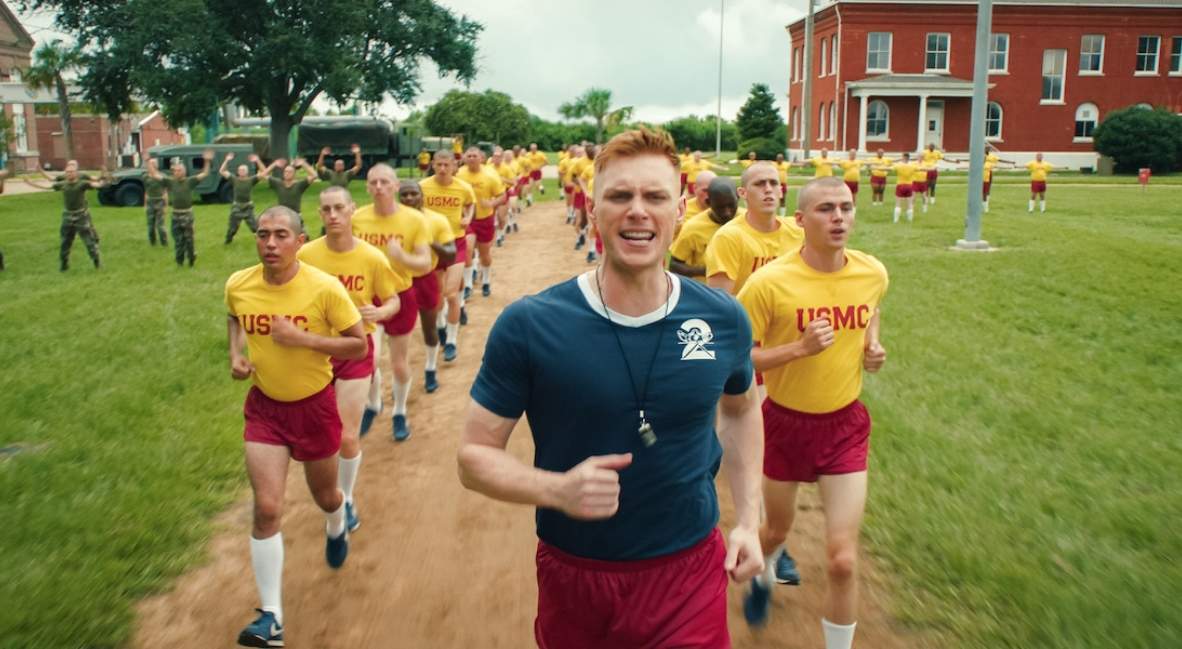
Nash, Ochoa, the Bowman brothers, and Santos are all secondary characters. Still, their roles in the ensemble cast not only round out the archetypes of the boys in the barracks but also add emotional depth to the story. But among the new people that Cope meets, it’s Nash who sticks out the most.
When everyone else is mean to Cope, Nash is kind. He’s a Howard man who signed up for the Marines as a reservist and didn’t tell his family about it. He sees the leadership that the Marines can offer him in terms of experiences and how it looks for an eventual career in politics, but his family views it as oppressive. Whereas Cope’s experience at hiding his sexuality and being afraid of being found out, Nash’s expertise, like McAffey’s, is through the lens of race.
For Nash, when they’re forced to shave the first day, Staff Sgt. McKinnon (Cedrick Cooper), the only Black drill sergeant we see in the series, comes through with shaving powder instead of the shaving cream put out for the white cadets to use. It’s a small kindness that Nash notices immediately and finds comfort in.
But when he starts excelling and leaving the rest of his group in the dust, as their leader, McKinnon views that as a failure. Where Sgt.McKinnon offers kindness; it’s also clear that he sees himself in Nash. And in doing so, the standard that Nash is held to by McKinnon is miles ahead of everyone else. He has to be exceptional because the color of his skin means he has no shield to hide behind.
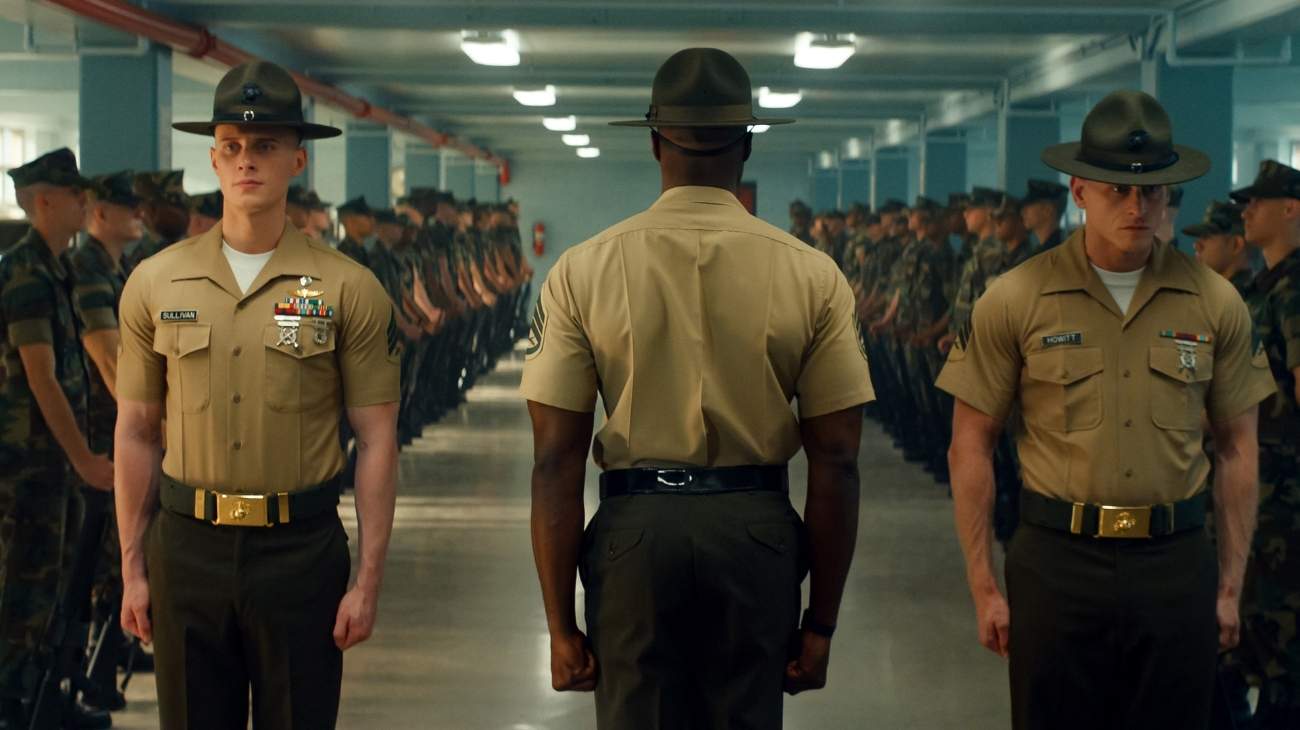
This thread is pulled through to Cameron Cope when Sergeant Robert “Bobby” Sullivan (Max Parker) replaces Sgt. Knox. Sullivan is a Recon Marine, which is equivalent to the Special Forces. They are the brightest, fittest, and the ones with the most responsibilities. Sullivan is an elite soldier who carries that title with pride, reciting “kill” in the mirror when he gets ready to leave his room for the day.
“Kill” becomes the central theme of the boys’ time at boot camp once Sgt. Sullivan comes into the picture. As their training gets harder and their relationships are tested, for Cope, there is someone who knows exactly what he’s hiding. While the majority of the early episodes of the season deal with acclimating to boot camp and each other, the back half of BOOTS focuses on turning everything internal.
Sullivan sees himself in Cope and is harder on him because of it. Sullivan wants Cope to kill a part of who he is to become a Marine. Sullivan isn’t interested in “converting” Cope like some conversion camp; instead, he wants to prepare him for the hatred and harm that awaits him both in the military and in the world.
It’s a labor of care; only Sullivan’s position and own trauma keep it from appearing as such. Instead, Sullivan pushes Cope past his breaking point, targeting him, harassing him, and intimidating him by letting Cope know that he knows his secret.
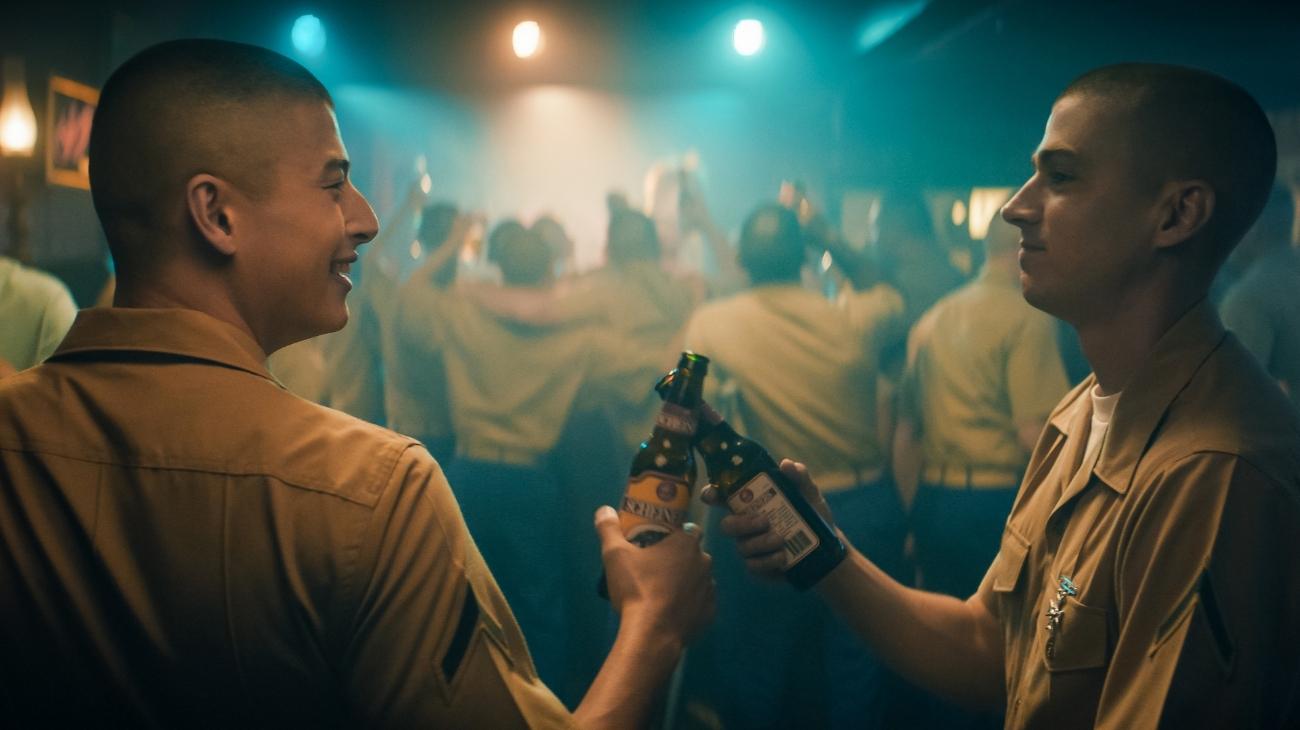
When Sgt. Sullivan realizes that this path is forcing his own destruction on a young man just trying to move forward in life, everything changes. But not in some wholesome way. Instead, the relationship shifts and they begin to first silently understand each other, until Cope comes into his own identity without shame or fear, and in doing so, finds the strength to rise in the ranks. But the first step is Cope believing that he is no less than any other man in there.
The series chronicles their experience as they join a diverse group of recruits, navigating the literal and metaphorical landmines of boot camp. Ray McAffey, Cameron’s best friend, is a ride-or-die companion who carries the pressure of being the son of a strict Marine father. When boot camp shakes his faith in himself, he is forced to reevaluate his life’s trajectory.
BOOTS captures how joining the military can heal some people, offering them an out from a bad situation, giving them purpose, and connecting them to a family when they no longer have one (for whatever reason). But it also doesn’t sand off any of the jagged edges and harsh reality of Marine boot camp. The insults, the manipulation, the hatred, it all rises to the surface. The ugliness of the military isn’t plastered over in the series with “hoorah” brotherhood bull.
BOOTS showcases how boot camp is designed to break you down to your foundation. It’s a nasty business, and the series refuses to let the audience look away when it is at its worst. But the series also captures the work that the Marines do to build you back up. We see that in the boys who make it and the men they become by the end of BOOTS Episode 8.
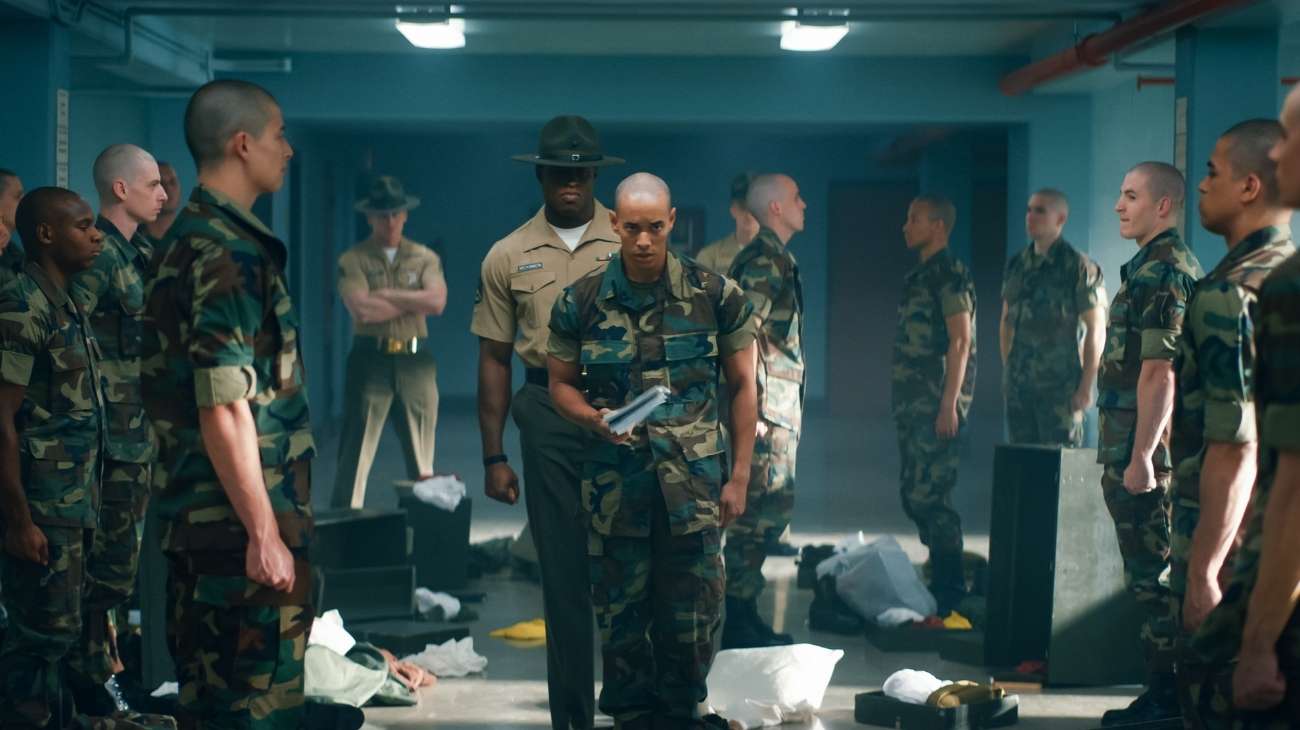
However, the audience is always prompted to ask if the cost is worth it, and the characters repeatedly verbalize that question to themselves and to others. BOOTS is perhaps one of the most grounded looks at joining the military. It asks why someone enlists. It shows the audience how they get through it. But most importantly, it tells us who entered and who comes out the other end.
This isn’t a series for those seeking a coming-of-age story that romanticizes the choices we must make as we grow into adults. It’s about the choices we’re forced into making, what we control, what we don’t, and ultimately the importance of friendship and relationships in our lives to keep us afloat.
BOOTS is unapologetically messy. As Cope, Miles Heizer plays multiple versions of himself. He’s the young man we see ready to cry in bed when his friend hasn’t returned after being knocked out cold. He’s the inner voice that shows up to keep himself from thinking he’s useless. He’s the man who becomes a Marine, and he’s a gay man who loves who he is, even if the world won’t.
Miles Heizer embodies every version of Cope, as each side of him that we focus on in BOOTS represents the same person. We’re all a jumbled mess of emotions and insecurities. BOOTS puts our lead in a brutal environment to figure it all out. Not everything about the series has a happy ending, but that reality is what makes it some of the most dynamic storytelling moments on television, particularly in how it asks its audience to rethink what makes it uncomfortable and why.
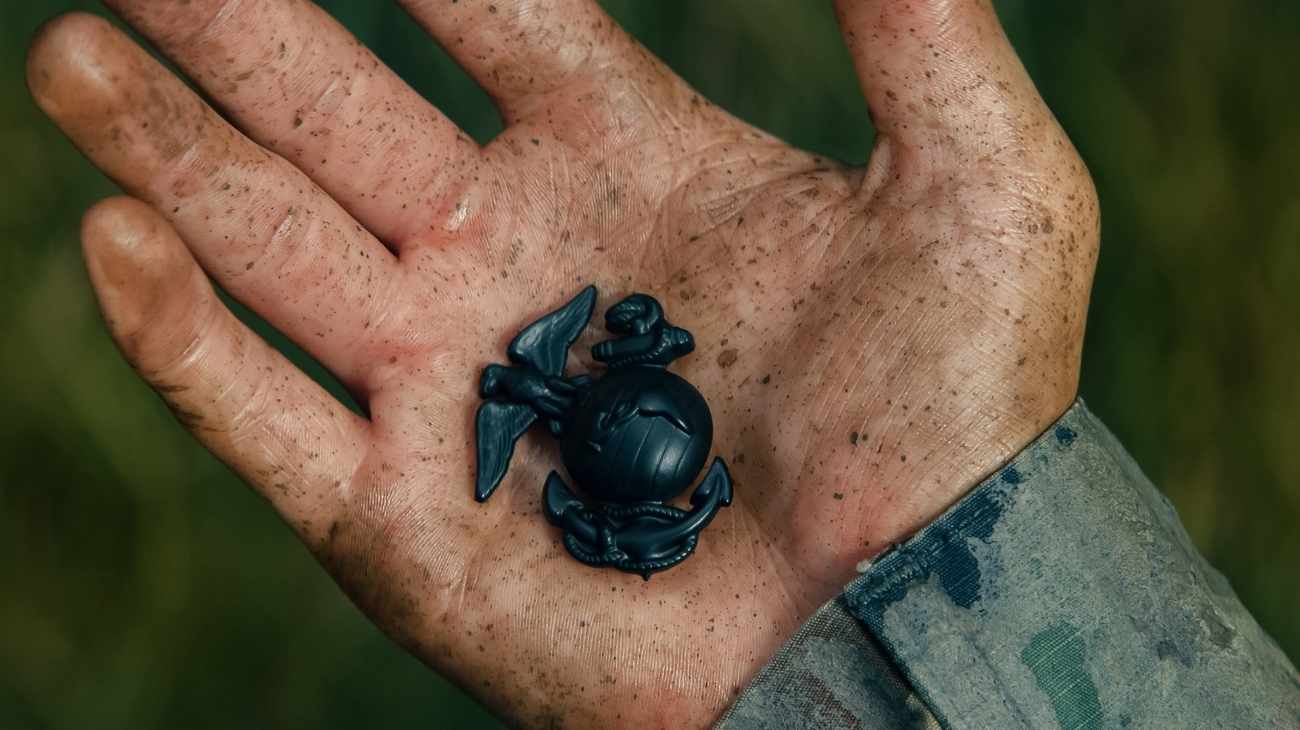
It’s this last fact that truly raises the bar for BOOTS as it goes on. It’s a pretty difficult to watch at times. When injuries happen or people break, we know it’s coming. But there are moments when the verbal abuse cuts so deeply into the characters’ faces that it becomes visceral. Each character is broken into pieces, and while the breaking is harsh to watch, it’s when they resign themselves to it that it hits even more emotionally.
BOOTS’ relentless honesty cuts out a universal truth from one man’s memoir: we all feel like f___k ups. It’s hard to separate my hatred for a military system that eats up and spits out young men. Given the reality of the world we currently live in, it’s even harder to want everyone to watch a series that portrays the Marines as a solution to feelings of loneliness.
It’s hard to love a series that will do more to throw young men into the arms of the military as a means to find themselves. But at the same time, to discount the growth and belonging someone, especially a gay man, found in the Marines as the climate in the US worsens, helps no one.
BOOTS feels necessary. It’s a unique kind of coming-of-age story, and for those who find strength in it, I hope it resonates with them. The difficult conversations that BOOTS engages with, from grief to identity, are valuable additions to queer stories. Dramatized for the screen, but heartfelt nonetheless, this is an adaptation of one man’s path in the Marines, but it winds up capturing more of us in the process.
BOOTS (2025) is streaming now, exclusively on Netflix.
BOOTS
-
Rating - 8.5/108.5/10
TL:DR
BOOTS feels necessary. Dramatized for the screen, but heartfelt nonetheless, this is an adaptation of one man’s path in the Marines, but it winds up capturing more of us in the process.

